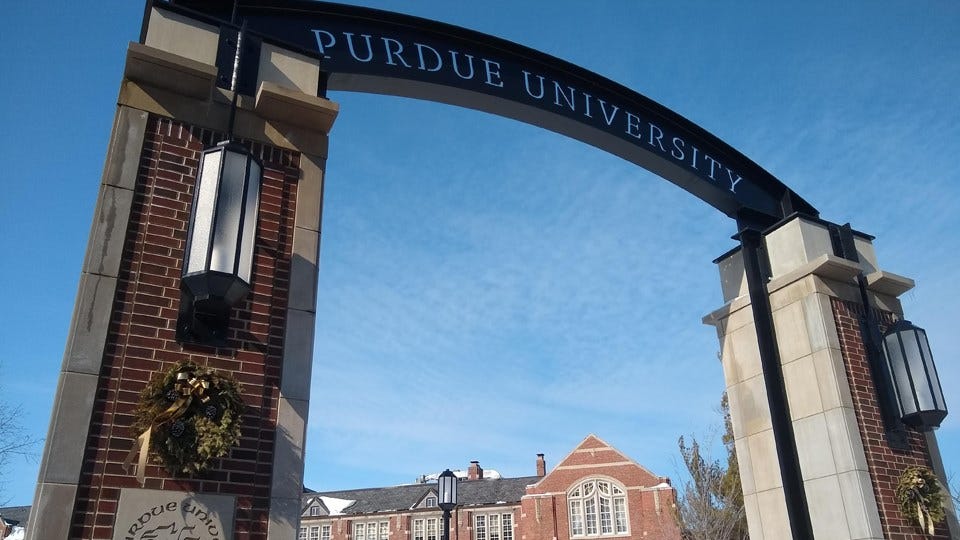Purdue Seeking to Boost Quantum Technology Training
 (Inside INdiana Business photo)
(Inside INdiana Business photo)
Subscriber Benefit
As a subscriber you can listen to articles at work, in the car, or while you work out. Subscribe NowPurdue University is looking to grow what it calls the quantum workforce: individuals in a variety of industries who are better equipped to further the development of quantum technology. The university says the applications are limitless, from computing to supply chain to communications. David Stewart, managing director of the Purdue Quantum Science and Engineering Institute, says quantum has the potential to be revolutionary technology, but there aren’t enough people to do the work.
In an interview with Inside INdiana Business, Stewart said it is critical that more people are educated and trained in quantum science.
“All of these technologies are going to improve our lives, from healthcare to our smartphones to financial security,” said Stewart. “But there’s also significant global competition here and the United States’ national security is on the line because of the potential impacts of quantum for secure communications and keeping our classified information secure via encryption methods that quantum can provide. So, there’s lots of benefits and need there.”
Quantum technology uses quantum mechanics to create more efficiency in a variety of ways, including boosting computing power and speed, improving encryption of secure communications, and quantum sensing, which could range from improving the sensitivity of medical imaging devices such as MRI machines or defense applications such as locating submarines.
Stewart says there is a definite undermanned workforce when it comes to quantum technology. He says the need became evident after Purdue was named a founding member of the federal Quantum Economic Development Consortium.
“Mostly industry members make up the large majority of [the consortium] and at all these meetings, they keep pushing that they can’t find the people that they need to do all the work that’s required. So, we’re kind of behind in that regard and, of course, as a public university…we’re here to grow science and technology and build up that workforce wherever there’s a need.”
To help build up the workforce, Stewart says Purdue has taken several steps, including hiring nearly a dozen faculty members over the past five years who are focused on various quantum areas, which he says will not only help instruction on the undergraduate level, but will also mean more graduate students working with those faculty members to train in those fields.
He says Purdue is also a member of the Quantum Science Center (QSC), which is funded by the U.S. Department of Energy. Purdue’s Alexandra Boltasseva, the Ron And Dotty Garvin Tonjes Professor Of Electrical and Computer Engineering leads the workforce development efforts for the QSC.
“We are developing programs to train the next generation of quantum scientists,” Boltasseva said in a news release. “We have a great infrastructure and capacity for creating and conducting education and training events. The more education that’s available, the more people and events students have access to, the more likely they are to connect and spark cross-institutional collaboration, which will lead to future advances. Most innovation happens at the intersection of disciplines, and quantum science and technology is extremely multidisciplinary.”
Additionally, Purdue is offering a three-course MicroMaster Program in Quantum Technology Computing, which Stewart says will allow students to get a feel for quantum technology and see if it is something they want to pursue further.
Long-term, Stewart says the goal is to continue educating the public on how critical quantum technology is and will be for the future, but also making younger students aware of potential career applications while they are in grade school.
“There’s not a lot of K-12-type education in quantum science and engineering, at least in Indiana, especially, but I know nationally as well,” he said. “The efforts are just starting in this area and how do we kind of get into schools and get kids interested in this? So that’s something that’s on our mind. We’re hoping to especially reach out to underrepresented and underserved groups in urban populations that don’t really have access to this type of information and training.”
Stewart says it is critical that more people are educated and trained in quantum science.
